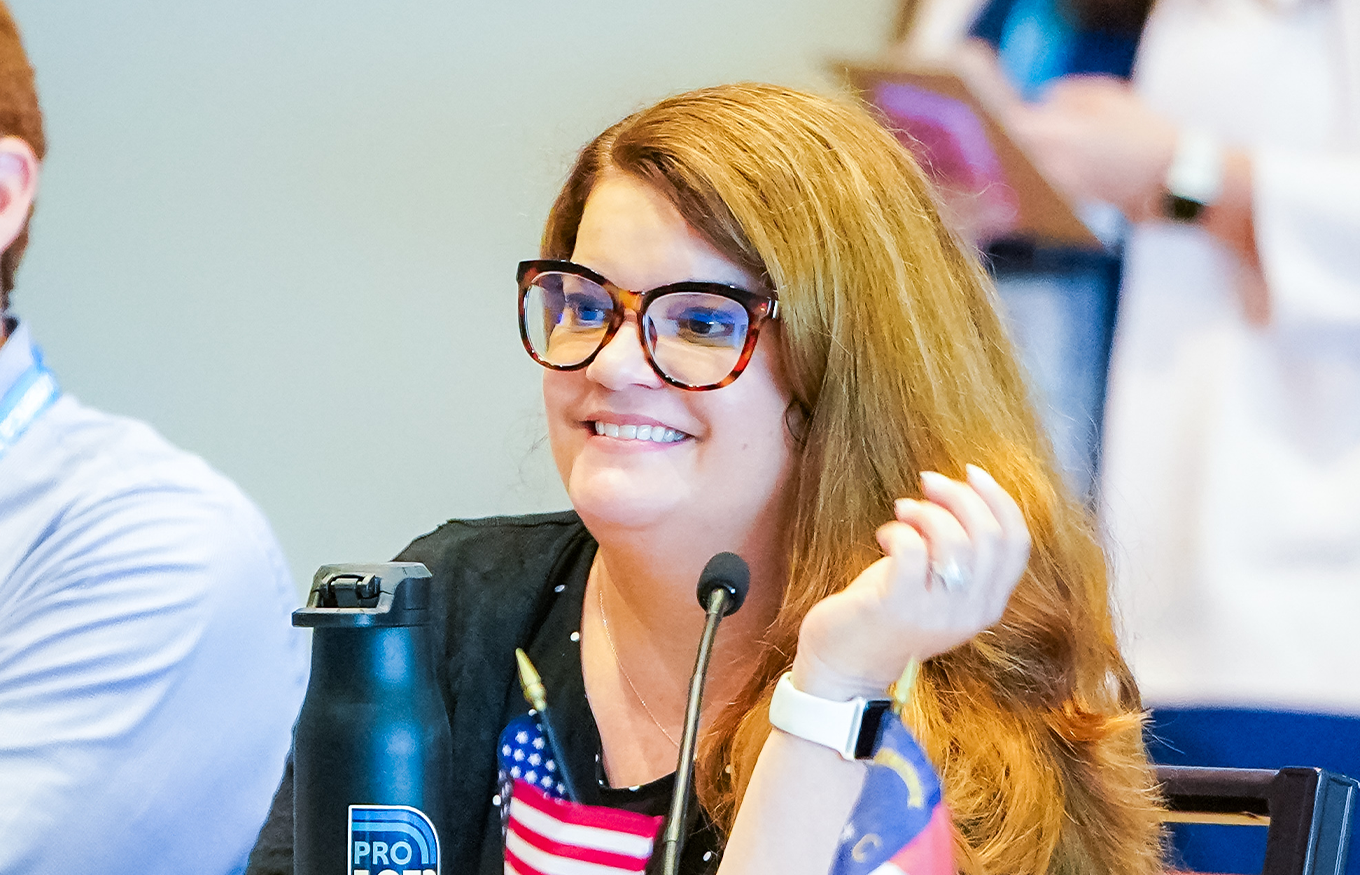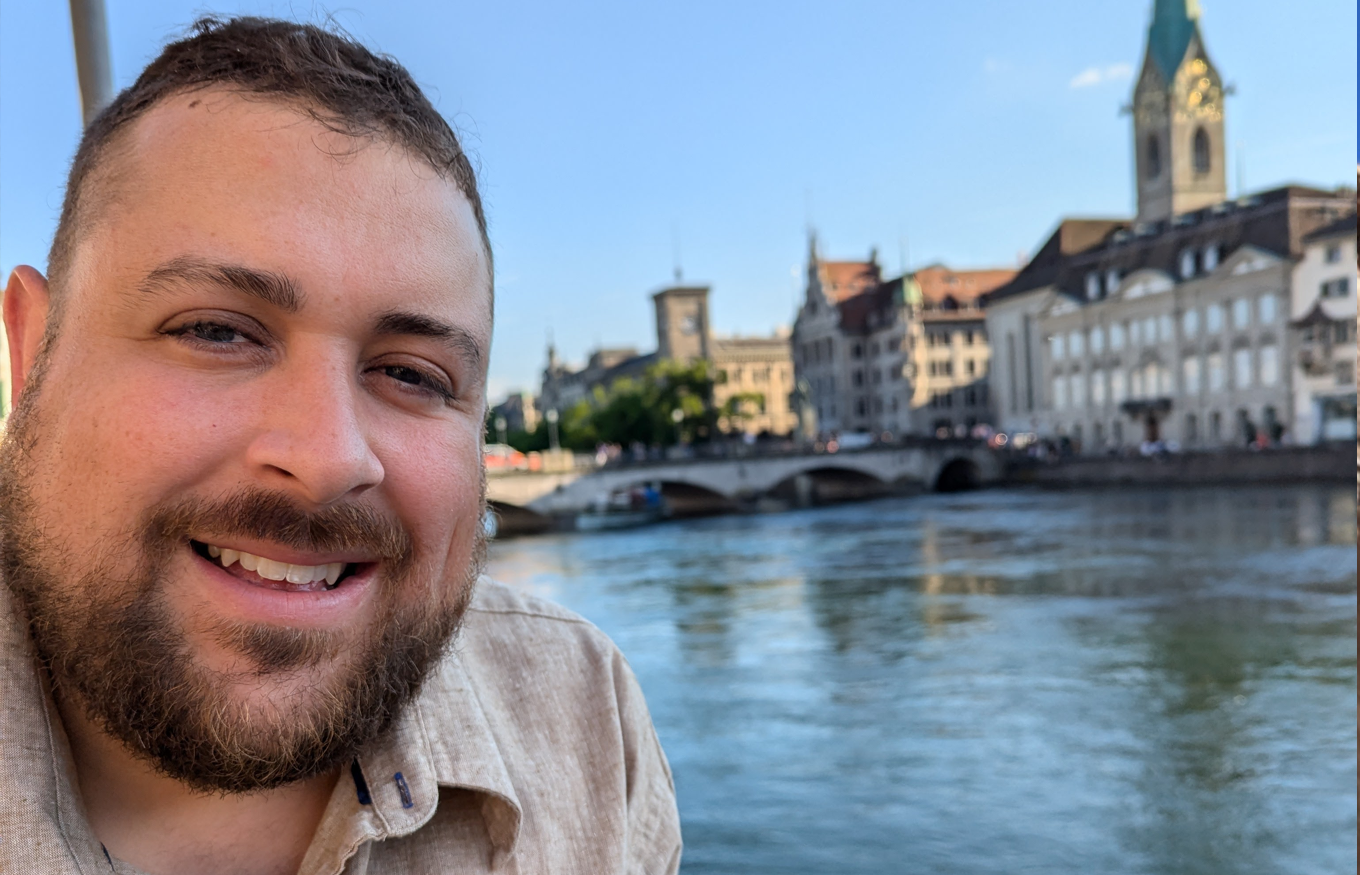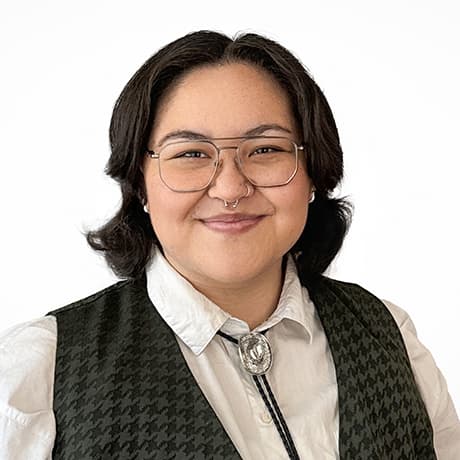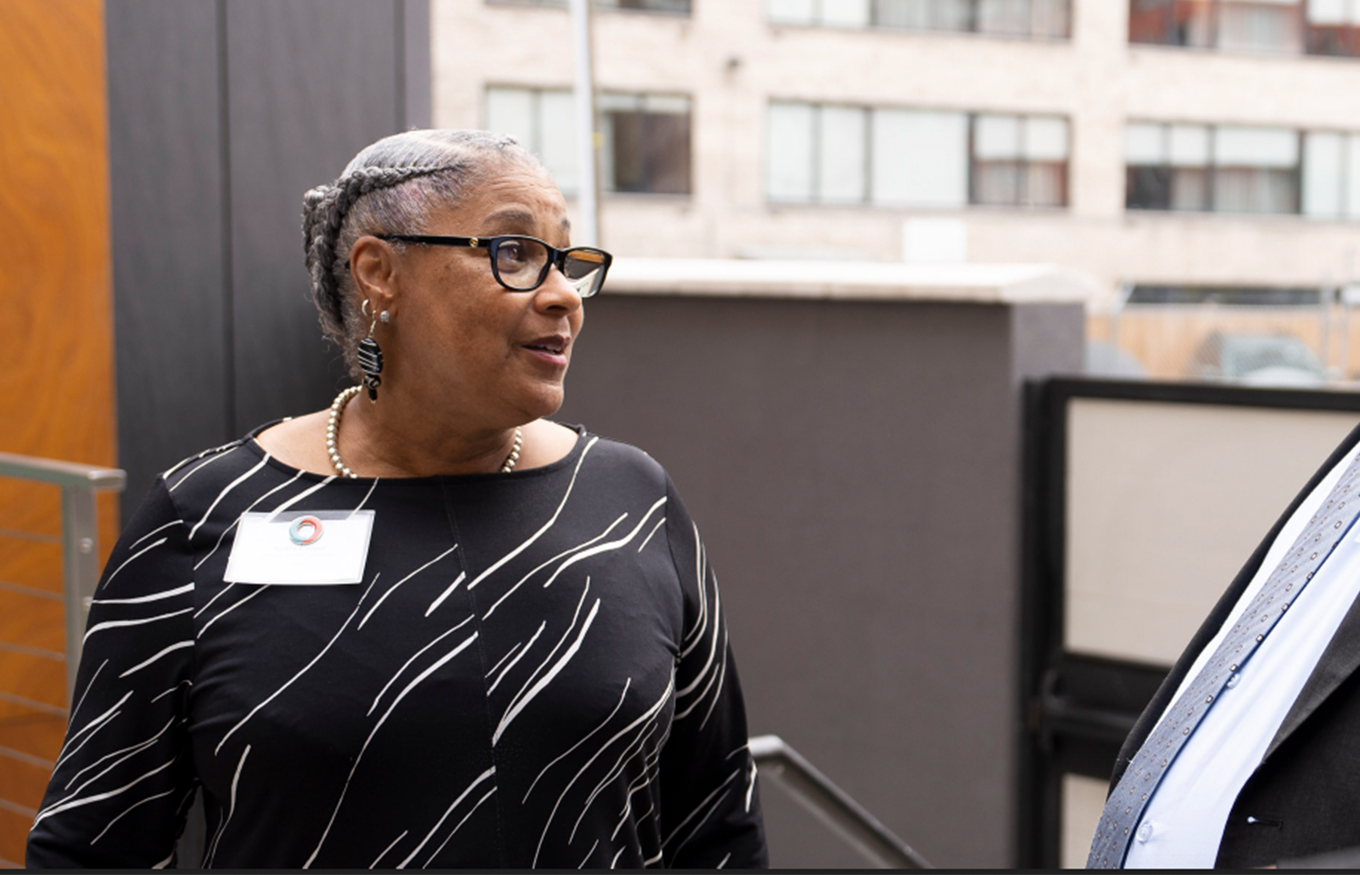Editor’s note: More than 10,000 officials across the country run U.S. elections. This interview is part of a series highlighting the election heroes who are the faces of democracy.
South Carolinian Isaac Cramer developed a passion for politics and elections at a young age, witnessing his mother cast her first vote after achieving her long-standing dream of American citizenship. He joined the Charleston County Board of Voter Registration and Elections in 2014 and began serving as its executive director in March 2021. He oversees election administration for more than 300,000 registered voters in South Carolina’s third most populous county. Charleston County spans along the state’s southern coast and is named for the largest city in the state, Charleston, where Cramer resides.
Cramer, who is not affiliated with any political party, has received prestigious honors for his extensive efforts to reform election administration and ensure elections are fair and secure. He earned a Clearinghouse Award from the U.S. Election Assistance Commission in 2022 and the J. Mitchell Graham Memorial Award from the South Carolina Association of Counties in 2023. He is also a two-time recipient of the State of South Carolina’s “Excellence in Elections” award. Earlier this summer, he was appointed president of the South Carolina Association of Registration and Election Officials.
In March 2024, Cramer testified before the U.S. Senate Committee on Rules and Administration, advocating for more robust and regular federal funding for election administration. Approaching the 2024 presidential election, he is particularly concerned about the high turnover rate of election officials (both in South Carolina and across the country) and about recruiting enough poll workers to help run elections.
Prior to his work at the Charleston County Board of Elections, Cramer studied political science and enjoyed various sports announcer positions at Wheaton College. He later served as an executive coordinator in the Indiana Attorney General’s office. Since January 2024, he has been part of Issue One’s Faces of Democracy campaign, advocating for protections for election workers and for regular, predictable, and sufficient federal funding of elections.
This interview has been edited for length and clarity.
Issue One: How did you end up in this profession?
Isaac Cramer: In college, I knew I wanted to pursue a career in government and politics. I had been on the other side of politics working on campaigns. After running some campaigns and relocating for my wife, I was at a crossroads in my career. I saw a job posting for the board of elections, so I applied and got the job. In my first role, I got a taste of what it was like on the other side of an election, rather than being the person trying to get someone elected.
Issue One: What part of the election administration story in South Carolina do you think is not told or widely understood enough?
Isaac Cramer: In South Carolina, our election infrastructure is aging across the state. A lot of counties are struggling with the buildings they conduct their business in. The aging infrastructure has resulted in needs not being met and created some challenges. As we go into the future, resources will be needed for the local counties for conducting those elections.
Another is that we have had over 80% turnover among the election directors in South Carolina since 2020. There are a lot of new people in the role — maybe not necessarily new to elections, but new to a leadership role, which entails overseeing the election process from A to Z and being responsible for all of it. These stories are starting to come out more and more, but they are not sounding the alarm bells enough right now.
I am the president of the South Carolina Association of Registration and Election Officials, and one of my goals is to develop training for directors — not just how elections are conducted, but also the leadership, relational, and communication skills that are needed in the role.
Issue One: In your job, how are you working to bring more transparency to the world of election administration?
Isaac Cramer: Transparency with security is a difficult balance. It is important to strike that balance and make sure we have secure processes and procedures while also talking to the public about how elections are run on the day to day.
Specifically in Charleston County, we invite community leaders in, we show them the process, and we talk to them. We launched a voter ambassador program to equip members of our community with the correct information so then they can go and talk to their friends, their neighbors, their churches, their civic groups about how elections are run. We empower people to be our voice.
Issue One: In the United States, election administration is not centralized, so 50 states have 50 different election administration systems. What are the key features or nuances of the system in South Carolina?
Isaac Cramer: The way that elections are run in a unique-though-sometimes-similar way across states makes our system great.
In South Carolina, each county has a board of elections. These range from five to nine members who are appointed by a legislative delegation with approval from the governor. Then, they appoint the executive director of each county. The county is responsible for conducting their respective elections.
The State Election Commission is the entity that oversees elections. We do not have a secretary of state that does that. The state commission also has a board and an executive director who is hired by the board, and the South Carolina Senate confirms that appointment.
Even though elections are run at the county level, the state has a supervisory role of policies and procedures, making sure the counties are being supported and that there is a standardized process. In South Carolina, we have a uniform system. No matter what county you go to, we have the same exact voting equipment and same voter registration system.
Issue One: How many voters are registered in your jurisdiction, and what are the main challenges of a jurisdiction of that size?
Isaac Cramer: We have over 320,000 registered voters, and one of the challenges of Charleston County specifically is that we have a lot of water around us. We have bridges, including draw bridges that get put up for a long time. For example, in James Island, one of our head poll workers got stuck trying to get to the office because the bridge was up. We are a very long county, with very rural parts and very urban and suburban parts. And there are islands. So that is very difficult, especially with hurricane season in October and November. We are prepared for what would happen in a hurricane situation in a November election.
Another challenge is making sure that we are serving voters in all areas of the county and not just focusing on where the population centers are. It is a challenge because we may not be able to have early voting in a certain part of the county if there is no suitable location or polling place. And we need to be ADA accessible for our voters, especially in the rural areas where there is not a lot of infrastructure.
Another challenge is our growing population. We have people who are coming from different backgrounds and are from out of state. You have to educate these new residents on how to vote and how to register to vote.
Issue One: You helped launch the “Adopt a Polling Location” program in Charleston County. Could you speak to what sparked the idea of creating such a program? And what has the impact of this program been in recruiting poll workers?
Isaac Cramer: Poll workers are the lifeblood of elections. We couldn’t conduct elections without them. We are precinct based in South Carolina, and we predominantly vote in person. In an in-person voting model, you need to have poll workers. We rely on close to 2,000 poll workers in a presidential election. In Charleston County, we are always looking for people to work. It seems like we never have enough poll workers.
I am focused on recruiting people who have never served as a poll worker before, people who are civically minded. These are the first people to volunteer at a food bank, the first people to do a neighborhood cleanup, to help organize a bake sale. The “Adopt a Polling Location” program fits right into serving the community.
I first learned about this program in Florida. A jurisdiction did it very well, so I called them to learn about the program, and I pitched it to our county. The essence is you find civically minded people who want to give back. They are not necessarily in it for the poll worker pay of $200. They want to actually give back to the community. One example of this is when we partnered with a local wrestling program that used this as a fundraiser for their team to buy jerseys and to fund their tournament travels. They told me that they look forward to every election because it helps them make their mark for fundraising instead of having to sell 5,000 brownies.
We also saw success with the local food bank and a couple other organizations that are very invested in Charleston County. We got the Stingrays, our local minor league hockey team, to all volunteer at a location. The mascot showed up with some players and the high fived the voters at that polling place, and it was just great. It was a great experience to have a hockey team at the polling place, the mascot, and people giving back. It was just a great environment for voters to see that voting is more than just casting your ballot. It is about the people that are around you. It is about exercising that civic responsibility you have to make your voice heard.
Issue One: Your office has partnered with Vet the Vote to recruit veterans as poll workers. What inspired you to seek out such a partnership, and what successes have you seen already?
Isaac Cramer: I previously worked for the adjutant general of South Carolina, and I saw firsthand, the experience of servicemen and women who come back — the pain, the hardship, the tears. When I began working on the other side of the government, we launched “Vote in Honor of a Veteran,” and I introduced a new component, called “Your Vote, Our Veterans.” We had veterans go into local classrooms and teach students why voting is important and to make the connection to the sacrifice and service of those who have served to ensure we have that right to vote.
Fast forward to this year, I knew that we would need poll workers, so I drew back on the experience I had of seeing the men and women in uniform who have served their country. Finding an organization like Vet the Vote, that is inspired to bring in veterans to serve as poll workers, felt like a natural fit in Charleston County since we have a lot of military families.
We had some veterans who worked early voting for us who wore their hat or their shirt, and we got some of their testimonials before the program was even launched. One veteran, named Curtis shared a story about how every time he has his veteran hat on, people always come up and thank him for his service.
We used that connection point to launch “Operation Civic Duty.” Out of that, we realized we already have a lot of veterans who serve as poll workers, and they were so excited to recruit their friends, their neighbors, and the people they know. My hope is that we can get at least 50 veterans for the November election who have never served as a poll worker before.
Issue One: Many people are surprised to learn that the federal government doesn’t routinely fund the costs of running elections. Why do you think the federal government should routinely contribute to election administration costs?
Isaac Cramer: First, we conduct elections for federal offices. Every other entity that we conduct elections for pays for that responsibility. The state government reimburses counties for some of that cost. When we have municipal elections, the same thing. But what drives voters to the ballot box is the office of president. Voter turnout is highest during presidential election years. The No. 1 office is president. Then congressional races. On our ballots, they get the prime real estate. That is what people are showing up for. We have an increased number of people coming to polling locations and an increased amount of ballots that are being printed, and the security levels go through the roof. We anticipate that there will be threats in the upcoming election. There will be instances where things could turn to a protest. We just want to be prepared for that. Giving counties and municipalities the tools and money to be successful is important.
Also if the concern out of Washington, D.C., on both sides of the aisle is security of election infrastructure — security of our polling places and security of the vote — then we need to put our money where our priorities are. Supporting election administration is vital to the health of the United States of America.
We need to fund elections from the federal level because a lot of these smaller counties and jurisdictions may not have the resources necessary to secure their infrastructure. They may not have the ability to purchase new voting equipment because it is very expensive and their tax base is small. I am appreciative that there was $55 million in appropriations [passed by Congress earlier this year for election administration in all 50 states], but we need more. We need more to be successful.
Issue One: What is the price tag of running an election in your jurisdiction?
Isaac Cramer: I want to be very clear that we do not get adequate funding through our state either. The state legislature, through the budget process, allocates money to the State Election Commission, who then reimburses the counties for certain election expenses, not all expenses. We look to them for reimbursements for ballots, part of our poll worker pay, part of our early voting pay, and notices that we publish, but the county is on the hook for everything else that exceeds the minimum rate. For this presidential election coming up, I believe it is going to probably cost over $2 million between all the poll worker pay and ballot deliveries. We may get about $400,000 or $500,000 in reimbursement, and these are rough ballpark figures.
Issue One: If your jurisdiction had extra funding, how would you spend it?
Isaac Cramer: The grants that were given by nongovernmental organizations in 2020 were a lifesaver. We were able to purchase things that we could never purchase before that were critical to the success of our elections. We purchased a mail opener, which basically scans every ballot and takes an image, bringing more security to the voting process. We were able to have all our ballots done by midnight, which is unheard of. We were also able to better engage with our community and purchase supplies that we would not otherwise have been able to.
If I had that type of investment again, the number one priority would be security. There are some really awesome products out there that would give us RFID [radio frequency identification] or GPS [global positioning system] tracking on every piece of equipment that leaves the building. We would probably put gates around our facility. We would invest in more technology for ballot tracking.
We would also invest in more training opportunities for poll workers and staff, and increase poll worker pay. During the pandemic, poll worker pay was $400, while the normal pay is $200. When that was the case, we got people who were never poll workers before who were willing to take a day off of work.
Finally, a goal of mine is to increase community engagement. If we had unlimited funds, I would hire a team of people to engage with the community. The more people that you are engaging with, the more the community can see and know the people actually conducting elections. There are so many opportunities, but a lot of it requires money.
Issue One: In recent years, election-related misconceptions, conspiracy theories, and lies have proliferated. How has this impacted your daily work?
Isaac Cramer: The biggest thing we saw in 2022 was that we had poll watchers who were harassing our poll workers on Election Day. There was a threat made on social media. Out of that movement, we have had a tremendous number of FOIA [Freedom of Information Act] requests. We’re just inundated with FOIA requests, and a lot of time has been taken away from us in order to dig out records and get legal advice.
The climate has changed so much. Poll workers do not want to mess up — they never wanted to mess up — but now they feel that every movement they make is under a microscope. If they look at somebody funny, if they do something that apparently is not in the playbook for a group that is observing, they worry they’re going to get in big trouble. That is not how it should be.
I remember when I first came into this job, poll workers and everyone always talked about how going to vote was like a big reunion. You saw your neighbors. You saw your friends. You saw your family. You saw the poll workers who had been working there for 10 years. Everyone knew each other. Now, it is not the same at all. You have people coming in who are just looking for what is wrong.
The distrust that has been sowed is now affecting the people who are working and is why we have lost people who don’t want to deal with it. I’ve heard them say, “I am retired, why do I need to stress out and have somebody think I am part of a mass conspiracy?”
We used to have public tests [of voting equipment] where nobody would show up. I want people to come see public tests for transparency. We used to never have anyone show up because it is like watching paint dry and nobody cared. Now, people show up with a binder and a list, asking questions that have nothing to do with the public test. They are coming with accusations like we are committing fraud.
Issue One: Given all these challenges, what inspires you to stay in this line of work?
Isaac Cramer: I am a son of an immigrant. My mom came here to visit, fell in love with the country, and became a U.S. citizen. I got to see my mom vote for the first time when I was a young kid. I have a sister who has special needs, and I have always known that I wanted to do meaningful work that has an impact on people’s lives and be a voice for people who may not have a voice. What better role to do that? I am in charge of the avenue by which people exercise their right to vote to make sure their voice is heard. I am inspired by people’s stories and ensuring that we give people the best voting experience while following the law.
I am very customer service based. I really want to serve people and make sure that we are doing a good job, to give them the best voting experience. There are so many people who died for the right to vote, who marched, and who sacrificed. We know many people who have wanted to come here for a better way of life, and I am part of that story.
Innovative ideas also keep me going. One idea that we are actually about to launch this summer is a children’s book about the importance of voting. The bigger message is that it is okay to have differences of opinions, but voting is still important. It is one of those things that make me really love my job, being able to bring innovation in and reach all people regardless of where they are and their age.
I always remind myself of these things when it gets super stressful or when I have somebody who has a camera in my face trying to sow doubt in our election system.
Issue One: Outside of being passionate about running safe and secure elections, what are your hobbies, or what is a fun fact that most people might not know about you?
Isaac Cramer: I love sports. I grew up the biggest Yankees and Jets fan. I love watching baseball, playing baseball, and golfing. I also love going to the beach and spending time with my family. I have two very young kids. Watching them grow is so rewarding and amazing.
A fun fact is that I am half Brazilian and speak Portuguese. I also love Taylor Swift, and I actually went to Zurich, Switzerland, to see her.
Issue One: What is your favorite book or movie?
Isaac Cramer: I love chick flicks. Romantic comedies are my jam. I am also a big John Grisham fan. I love lawyer type novels.
Issue One: Which historical figure would you have most liked to have had an opportunity to meet?
Isaac Cramer: If it could be anybody, it would be pretty sweet to walk the earth with Jesus. I’d especially love to learn how to serve people.
Note: This piece was cross-published with The Fulcrum.







